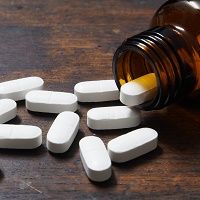New Research Examines Unused Opioid Medications Following Dental Surgery
In a recent study, most patients who underwent dental surgeries no longer had pain after five days. However, most had plenty of opioid pills leftover.

In the aftermath of extensive surgical procedures, like the removal of impacted wisdom teeth, many patients want pain medication to adequately treat their pain and allow them to more pleasant recovery. Recent research has found that more than half of the opioids prescribed to patients after these kind of procedures go unused.
Researchers at the University of Pennsylvania’s Perelman School of Medicine and School of Dental Medicine conducted the
, which examined prescription opioid use in 79 patients after dental impaction surgery. In addition to looking specifically at opioid use, the researchers also wanted to see if a financial incentive, coupled with information about a pharmacy-based drug disposal program, would inspire patients to properly dispose of their unused medications.
Ninety-four percent of the study participants received a prescription for opioid pain medication following their dental surgeries. The participants in the study received a pre-loaded debit card containing $10, and text-based surveys assessing patients’ pain level and opioid use were sent to patients daily for the first week after surgery. After the first week, participants received surveys on post-op days 14 and 21. Each survey completed resulted in an additional $3 loaded onto the debit card, for a total of $27 available to earn. An additional $10 was awarded after completion of a voluntary follow-up health interview.
The results of the study showed that, within five days of the surgery, most patients experienced relatively little pain. Most of the patients also still had over half of their prescribed opioid medications. Patients received an average of 28 pills when they received their prescriptions and the majority had 15 pills remaining that went unused. In total, 1,010 prescribed opioid pills were unused among the study participants.
Additional results showed there was a 22% increase in the number of patients who planned to properly dispose of their unused medications or planned to, based off the availability of information regarding the pharmacy-based drug disposal program.
The results are significant for dentists because of the rates of prescription opioid abuse in the United States. As researchers hypothesized, opioid medications that are left over from surgeries might contribute to drug diversion in individuals that abuse prescription opioids. Dentists and other healthcare providers might be able to help reduce opioid diversion by reducing the amount of opioids prescribed after surgery. One of the co-authors on the study, Elliot V. Hersh, DMD, MS, PhD,
that “
while opioids can play a role in acute pain management after surgery, they should only be added in limited quantities for more severe pain.”